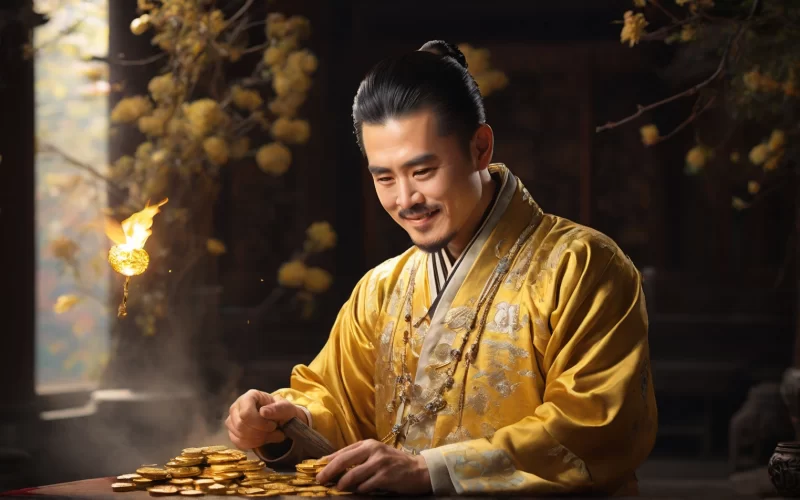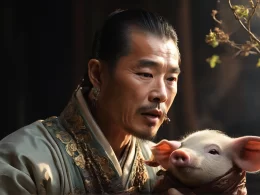Idiom Explanation:
To march rapidly straight towards one's destination, it refers to the smooth advance of the army with unstoppable might.
Pronunciation:
长驱直入
cháng qū zhí rù
Origin:
汉·曹操《劳徐晃令》:“吾用兵三十余年,及所闻古之善用兵者,未有长驱径入敌围者也。”
Story:
In 219 A.D., Cao Cao fought a fierce battle with Liu Bei in this area to seize the strategically important Jingzhou. Liu Bei's general Guan Yu surrounded Xiangyang with heavy troops, and Cao Cao's cousin Cao Ren was in a rather difficult position as he held the adjacent Fancheng of Xiangyang.
In the seventh month of the same year, Cao Cao sent General Yu Ban to reinforce Cao Ren with his troops. Soon after, it rained heavily in the area of Fancheng and the Han River flooded, so Guan Yu took the opportunity to divert the water to flood Cao's army, which resulted in the destruction of all of Yu's troops and forced him to surrender.
Cao Ren was in a critical situation because of the flooding into Fancheng. Some of his generals advised him to abandon Fancheng and retreat by boat. However, some people opposed strongly, saying that the water could not be so big all the time and would recede after some time, so it was better to hold tightly. Cao Ren thought it was reasonable and decided to hold Fancheng tightly.
Soon after, Cao Cao sent his general Xu Huang to relieve the siege of Fancheng with his troops. He did not lead his troops to Fancheng directly, but stationed them a little farther away, and then sent a secret arrow to send a letter into Fancheng to get in touch with Cao Ren. Cao Cao, who was still organizing other troops to reinforce him, was very pleased with Xu's action and asked him to wait for all the troops to arrive and march into Fancheng together.
At that time, part of Liu Bei's army was stationed in Yancheng, which was not too far from Fancheng. Xu Fang led some troops to the outskirts of Yancheng and deliberately dug a trap, as if to cut off the retreat of Yancheng's army. The garrison army was tricked and hastily evacuated from Yancheng. So Xu Huang easily captured the city.
At that time, the twelve troops sent by Cao Cao had arrived. So Xu Huang and these troops met up and planned to attack Guan Yu with Cao Ren both inside and outside. Guan Yu had troops stationed at two places, Weitou and Sizuka. Xu Ke pretended to attack Weitou, but in fact he led his army to attack Sizuka. By the time Guan Yu found out the direction of Xu Huo's main attack, it was too late. The 5,000 troops that rushed to Shizuka were easily defeated by Xu Huo. Then Xu Huo led his men and charged all the way into Guan Yu's encirclement of Cao Ren. Guan Yu's generals were defeated and left, and Xiangyang and Fancheng were finally relieved of their siege.
The report of Xu Huo's victory reached Cao Cao, who immediately wrote a condolence order and sent it to the front. The order said, "I have been using the army for more than 30 years, and I have heard that no one who used the army well in ancient times has ever driven straight into the enemy's siege." It means, "I have been using the army for more than thirty years, and I know of no one who is good at using the army in the ancient times, but none of them can run as long as you do, without stopping, and keep going forward to break into the enemy's encirclement.












